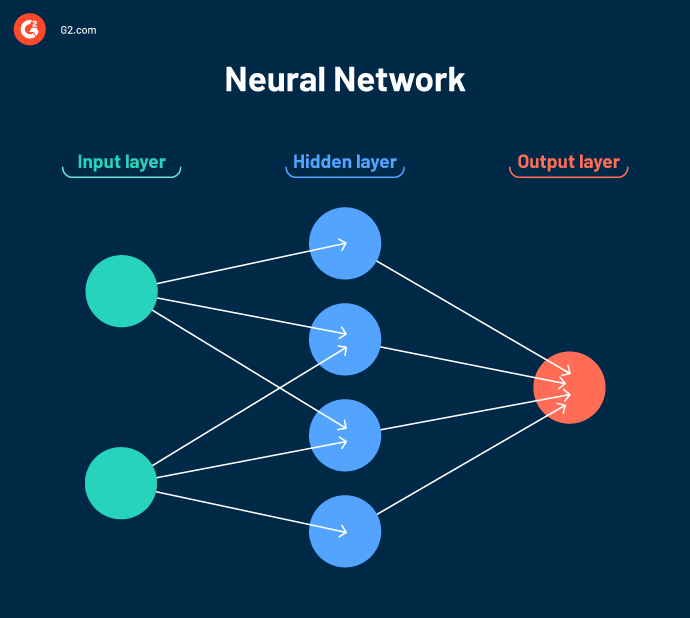The legal industry presents a unique contrast: many of its principles have remained the same for 150 years, yet the way we practice law is constantly changing.
Today’s legal professionals are regularly seeking ways to optimize processes and improve practices while building on tried-and-true methods.
In recent years, and most notably in the last six months, artificial intelligence (AI) has had enormous promise for revolutionizing the way legal services are delivered. AI is disrupting industries – from journalism to manufacturing – and we are seeing a similar revolution in the practice of law.
As G2’s General Counsel, I’ve been particularly interested in how this innovation is impacting the legal industry. I started my legal career at a large law firm, working on some of the largest M&A deals in the country. The contracts we produced were hundreds of pages long, and the diligence required to produce them meant reading through many thousands of pages. I thought - there has to be a better way! Could AI be the answer?
From legal research to document analysis to contract review, AI software has already begun to make its mark in the legal industry, and the possibilities for future innovation are endless. Let’s take a closer look at the impact of AI on the legal industry and explore the potential benefits and challenges of this transformative technology.
Understanding the evolution of AI
The term “artificial intelligence” has been around for many decades, originating all the way back to computer and cognitive scientist John McCarthy in the 1950s. But AI has taken a huge leap forward in the past few years through a type of neural network called a “transformer.”
Neural networks are a type of computer program architecture that is loosely based on the neurons in the human brain.

Just like the neurons in the human brain, neural networks are composed of nodes and neurons - the nodes act as connectors to the various neurons. The nodes and neurons work together to come to a cohesive conclusion or understanding.
In 2017, a new type of neural network architecture called a transformer, was introduced, which significantly advanced AI technology. The transformer enabled large language models (LLM).
In a nutshell, LLMs take a series of words and predict the next word over and over again. You might give it a prompt, like, “tell me about the role of AI in the law,” and it might have learned from the corpus of all the writing that appears on the internet and come up with something similar to this blog (although this blog was written by a human). That’s remarkable because, for the first time, AI has an interface like a human; an interface in which it communicates naturally.
This is powerful for the law because the language of the law is the written word. Suddenly, AI can speak the language of the law since it can communicate in the written word, and it can both understand and generate text a lot faster than humans.
The positive effect of AI on the legal industry
In-house legal practitioners have access to dozens of tools that integrate AI, most often in contract lifecycle management systems and legal billing systems.
How AI affects in-house legal practices
Contract lifecycle management tools and legal billing tools can summarize contracts, trace billable hours and offer suggested contract language, which any in-house lawyer knows can save large amounts of time. These tools can also support anomaly detection by helping attorneys identify how certain contract terms depart from their standard forms.
How AI affects law firms
Several AI software tools are presently being tailored to law firms. These tools are effectively being used to accelerate the work of a more senior attorney by producing a work product akin to the work product of a junior associate.
In traditional law firm models, junior associates provide leverage for the more senior attorneys. Now, more senior attorneys can rely on AI to gain that leverage, ultimately resulting in a more cost-effective business model for both the firm’s clients and the firm itself.
AI in litigation
AI has been part of the legal discovery process for a long time. Companies providing eDiscovery software solutions, like Relativity and Everlaw, have been helping attorneys filter through thousands of pages of discoverable material with greater speed and precision.
AI is already shaping discovery and contracts, but managing cases still requires the right tools. Compare the best legal case management software on G2 to keep matters organized and efficient.
The future of AI and law
Will we ever get to the point where there’s an AI machine ‘playing’ lawyer from start to finish?
One example I’ve seen attempting this is a company called DoNotPay, a somewhat sensationalized example of a robot lawyer. Users can turn to DoNotPay to dispute their traffic tickets, as the tool produces everything required for the dispute using AI. With solutions like DoNotPay, users can now respond to email spammers as well.
Regardless of how good AI tools may become, AI will never truly replace the lawyer. In fact, the lawyer’s job is going to be one that is even more powerful because lawyers will be utilizing their higher-level thinking skills even more strategically as they build off of the product that AI produces. As AI continues to improve in the legal space, this is an extraordinarily exciting time to practice law and capitalize on all the innovation happening.
The final verdict
Like most other industries, AI adds a lot of value to the legal space. The integration of AI in the legal industry has the potential to revolutionize the way legal services are delivered overall. Ultimately, the successful integration of AI in the legal field will require a balance between leveraging its benefits and addressing its challenges.
Wondering what the ethics of AI really looks like? Check out this article to learn more about AI moral principles and how you can stay compliant.
 by Andrew Stevens
by Andrew Stevens
 by Troy Wheeler
by Troy Wheeler
 by Eunice Buhler
by Eunice Buhler